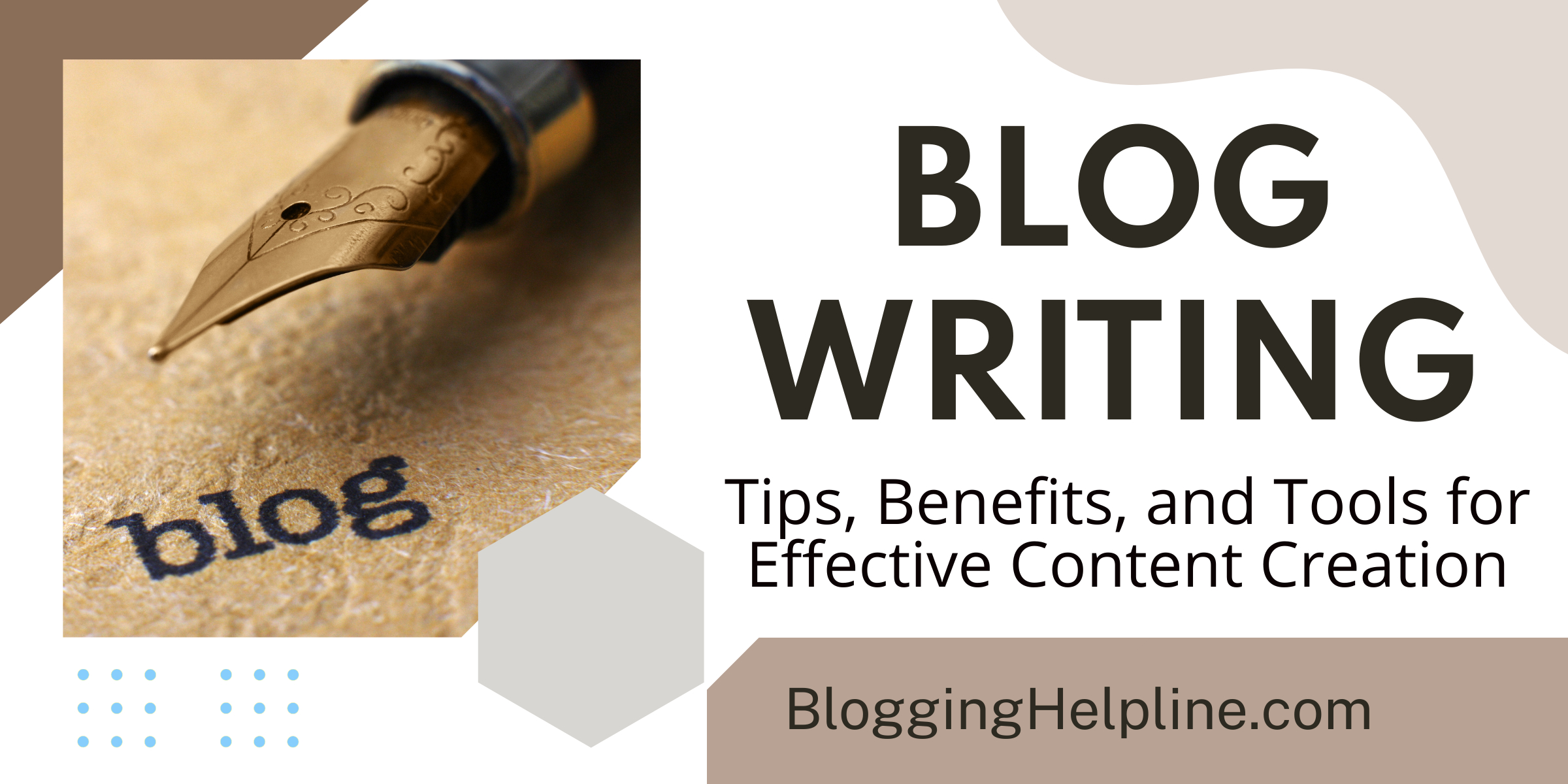Table of Contents
The Importance of Blog Writing
Are you feeling inspired to start a blog, but aren’t sure if it’s worth the effort? Let me tell you, blogging can make a huge difference in your personal and professional life. Not only can it help you develop your writing skills, but it can also provide benefits such as increased visibility, better search engine rankings, and the opportunity to connect with like-minded individuals. In this article, we will explore the importance of blog writing and why it’s worth investing your time and energy into it.
Benefits of Blog Writing
Blogging offers numerous benefits that make it a worthwhile pursuit. Some of these benefits include:
Improved Writing Skills
One of the most apparent benefits of blog writing is the opportunity to develop your writing skills. Writing regularly helps you refine your writing style, grammar, and vocabulary. The more you write, the better you become, and this will reflect positively on your personal and professional life.
Increased Visibility
A well-written blog can attract a significant amount of traffic, which can lead to increased visibility for you or your business. When people visit your site, they get to know you and your expertise, making you an authority figure in your field.
Better Search Engine Rankings
Blogging can also improve your search engine rankings. Search engines love fresh content, and regular blog posts can help you stay relevant in the eyes of search engines. When your site appears on the first page of search engine results, more people will visit your site, which can lead to more business opportunities.
Networking Opportunities
Blogging also provides networking opportunities. It’s a platform to connect with like-minded individuals, share your ideas, opinions, and gain new followers. This can lead to new opportunities, collaborations, and partnerships.
Tips for Effective Blog Writing
To reap the benefits of blogging, you must learn the art of effective blog writing. Here are some tips to help you get started:
Identify Your Audience
Before writing your blog, you should understand your target audience’s needs and preferences. This will help you create content that is relevant and valuable to them.
Choose a Focal Point or Theme
Your blog should have a central theme or focus. This will help your readers understand the purpose of your blog and what they can expect from it.
Write Engaging Headlines
Headlines are the first thing your readers will see, so they need to be catchy and engaging. Use descriptive language and keep the headline short and sweet.
Use Subheadings
Subheadings help to break up long blocks of text, making your content more readable and scannable. Use subheadings to introduce new sections or ideas, and make sure they’re descriptive yet concise.
Write Short Paragraphs
Large blocks of text can be intimidating to readers, so keep your paragraphs short and focused. Aim for two to three sentences per paragraph.
Use Bullet Points and Lists
Bullet points and lists are another excellent way to break up long blocks of text and highlight important information. They’re also more scannable, making it easier for readers to find the information they’re looking for.
Incorporate Multimedia
Images, videos, and infographics are excellent ways to make your blog posts more engaging and visually appealing. Make sure to use high-quality media that is relevant to your blog post’s topic.
End With a Call to Action
Always end your blog post with a call to action, whether it’s asking your readers to leave a comment, share your post on social media, or sign up for your email list. This encourages engagement and helps readers feel more connected to your blog.
Tools for Blog Writing
Writing a blog can be challenging, but there are tools available to make the process easier. Here are some tools that can help you become a better blogger:
Grammarly
Grammarly is a free writing assistant that helps you eliminate grammatical errors and improve your writing style. It’s a must-have tool for bloggers who want to produce high-quality content.
Hemingway Editor
The Hemingway Editor is another useful tool for bloggers. It helps you simplify your writing, making it easier to read and understand. It highlights complex sentences, passive voice, and overused adjectives so you can make your writing more concise and straightforward.
Google Keyword Planner
Google Keyword Planner is a free tool that helps you find the right keywords to use in your blog posts. It shows you how often people search for specific keywords, making it easier to optimize your content for search engines.
Conclusion
Blogging is a fantastic way to improve your writing skills, increase visibility, and connect with like-minded individuals. With these tips and tools, you can become a better blogger and reap the many benefits that come with the pursuit of blog writing. Remember to write for your audience, keep your content focused, and always end with a call to action. Happy blogging!
